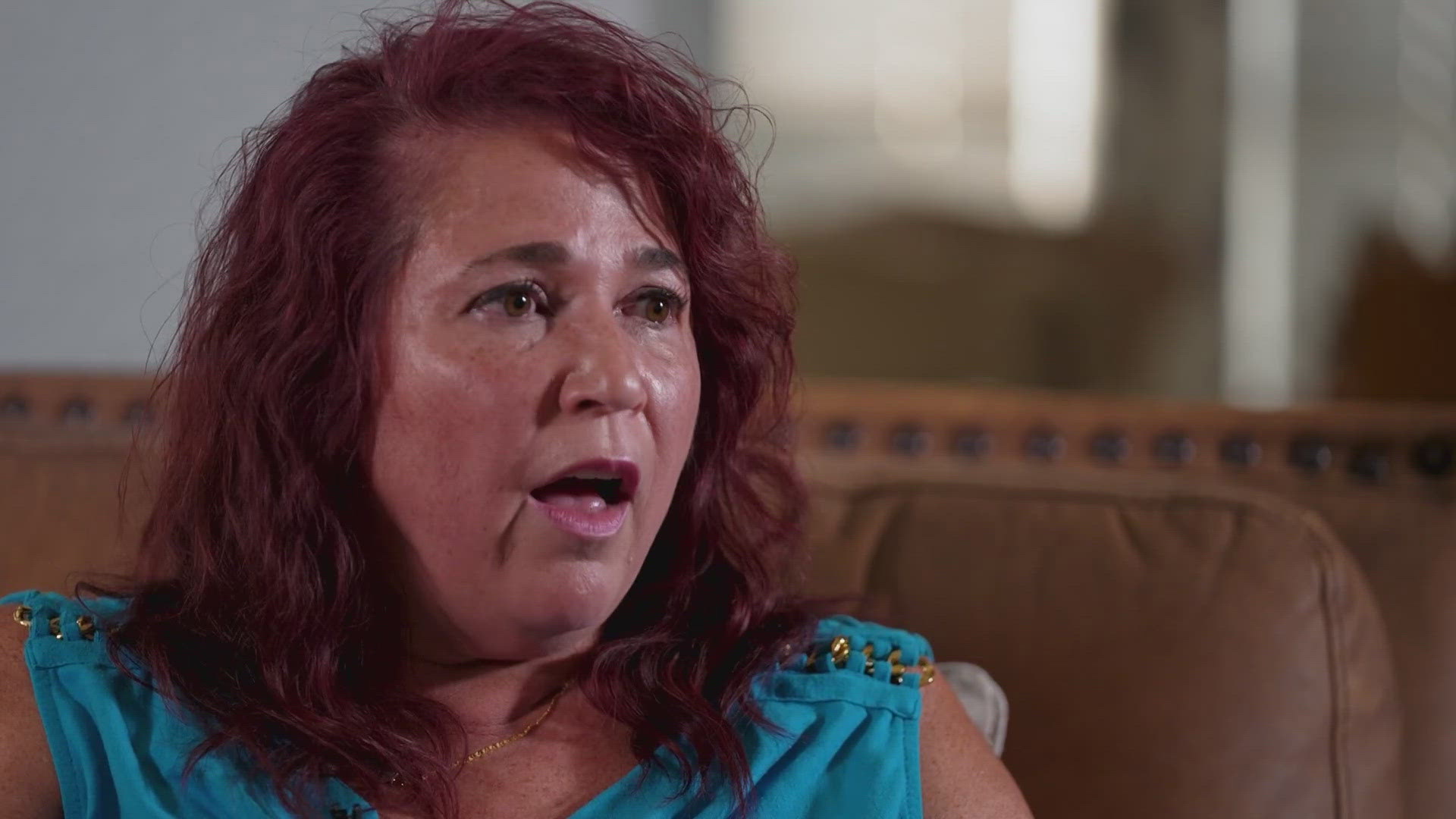MCKINNEY, Texas — It has been a year since Neysa Lambeth's husband died and she is still in mourning. What happened Friday to another UPS driver brought all of those tough emotions back. Her husband, Chris Begley, 57, died days after collapsing on a route in Farmersville. His passing in late August set off a firestorm of scrutiny over safety standards in scorching conditions.
"He was a fun guy, he really was," said Lambeth. They had been together for nineteen years and Neysa described Chris as a 'quiet' person who, more than anything else, was devoted to his family. But Neysa tells WFAA providing for the family came at the cost of very long, tiring, hours in high and low temperatures to deliver goods to people.
"He would come home sit in this chair and not move for the entire night," she said.
Begley collapsed on Aug. 23 and died five days later in the hospital on Aug. 28th. Neysa says a supervisor came to pick up her husband from the route location. "A normal person would know to take him to a hospital or at least call 9-1-1," she said.
In statements provided last year UPS said Chris Begley refused to go to the hospital. But Neysa says her husband was not in a stable state to make that decision. She is breaking her silence after a year after what happened Friday when the union says another UPS driver passed out from the heat and crashed into a tree. The Anna Police Department confirmed that officers responded to that accident involving a UPS vehicle on the Sam Rayburn Tollway near the outer loop. The driver was taken to the hospital and the cause of the accident is under investigation, Anna Police said.
"I don't see a protocol. There's two heat incidences a year apart and two completely different responses," said Neysa Lambeth.
Dr. Fahmi Farah, who is an Invasive Cardiologist, says many people under-estimate heat cases. Farah says there are a number of factors that go into how a body reacts to heat. She says a lot depends on age and health and the amount of exposure.
"Your body's mechanism for cooling down shuts off when your body reaches a threshold temperature," Farah said.
Dr. Farah says internal organs can start shutting down and conditions like stroke and heart attack are very possible. "It can happen in minutes, less than five minutes [of heat] exposure," the doctor said.
Neysa says she cannot imagine what her husband had to to: driving and delivering for eight to twelves hours in triple digits in a truck with no air conditioning.
UPS says it's invested $409 million this year in training and "specialized cooling gear" and "equipment to our vehicles and facilities that helps protect our people from the heat." UPS Says every truck bought after January 1st has A/C. Neysa that doesn't help those driving the older fleet.
"I could still have him here with me because it's been horribly lonely and sad and difficult," Neysa said.
In a statement Monday UPS argues Chris Begley died of coronary conditions. The statement reads, "the autopsy report found no connection between Chris’s death and his last day of work which was several days before he became hospitalized and died from coronary conditions."
Neysa says that statement about the nature of Begley's passing is a slap in the face. Especially after, she says, an OSHA report and subsequent $62,000 violation summarized it as "heat stress." A text for that citation found online reads, "when medical facility for treatment of injured employees was not available in near proximity, the employer did not have a person or persons trained to understand and render first aid treatment or ensure other medical treatment was available/utilized for all injured employees."
She is planning to move on from their McKinney home. She says it is just too big for her alone, has too many painful reminders, and is too much of a financial burden alone..
"It's too hard for me to be here," she said.
Neysa says she hopes to fight for drivers everywhere in other ways and applauds the work of the union to continue to keep drivers safe.

